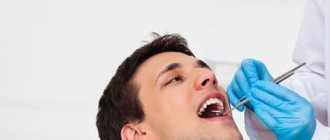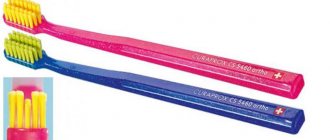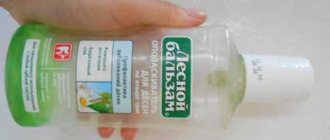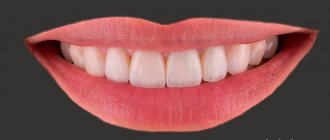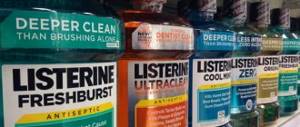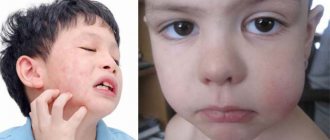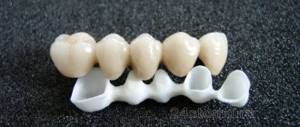To ensure your teeth always remain healthy and snow-white, they should be properly cared for.
Dental care includes several procedures:
- You need to brush your teeth at least 2 times a day (morning and evening). But it is better to carry out the procedure after each meal. Cleaning duration is 2-3 minutes. You should also clean your tongue and the inside of your cheeks. It is recommended to buy toothpaste that contains natural ingredients. Echinacea paste is an ideal choice.
- After eating, you should rinse your mouth with a dental elixir, a special rinse, or a soda solution. These remedies will help prevent gum inflammation and the development of caries. Rinse your mouth for at least a minute.
- Remains of food and plaque between the teeth are removed with dental floss. The procedure is carried out in the evening before brushing your teeth.
- You should visit the dentist once every six months for preventive purposes.
Caring for your first teeth
Babies' first teeth usually erupt at 7-8 months of age, although they can appear at 6 months or 9-12 months. This process is accompanied by pain and itching.
During teething, there is increased salivation, causing irritation around the mouth. Therefore, it is necessary to regularly wipe the baby’s face using a soft cloth.
To prevent infection and inflammatory processes, the child is given only clean objects, as he puts them in his mouth.
Gum massage will help speed up teething, relieve pain and itching. The massage (it should be gentle) is done with a clean finger wrapped in a bandage.
After teething, brushing should begin. Children under one and a half years old have their teeth brushed once a day. It is better to carry out the procedure with a silicone brush, which the mother places on her finger.
Older children should be taught to brush their teeth independently 2 times a day. To brush your teeth, you need to purchase a soft brush made specifically for children. First, let the baby run a brush without toothpaste over his teeth. Over time he will be able to use the paste. It is advisable to purchase a safe toothpaste for children that does not cause problems if accidentally swallowed and does not contain fluoride.
At 2.5 years old, a child is taught to rinse his mouth with water after eating.
Routine dental examinations should be carried out every six months starting at one year of age.
Useful tips
- Prevention of oral diseases should be carried out with hydrogen peroxide (3%). She needs to rinse her mouth daily. Hydrogen peroxide must be diluted with baking soda (a quarter teaspoon).
- After brushing your teeth, rinse your toothbrush with hydrogen peroxide.
- If you have gingivitis or periodontitis, then you should massage your gums using fir oil.
- Kombucha tincture will help in the fight against stomatitis (you need to keep it for a week).
Wisdom teeth care
Wisdom teeth, called “eights” in dentistry, unlike other teeth, appear after 23 years. Their eruption is usually accompanied by severe pain and inflammation. An irrigator will help get rid of discomfort. He will massage the gums, which will improve blood circulation and ideally clean hard-to-reach areas. Otherwise, caring for “eights” is no different from caring for regular teeth.
But quite often, wisdom teeth become the cause of many problems, which makes it necessary to remove them. After the removal of such a tooth, a large hole is usually left, the healing of which takes a long time (up to 6 months). In addition, food debris gets clogged into the hole and begins to rot, causing inflammation and an unpleasant odor. Therefore, the hole requires special care. You can try to clean the wound with rinses, but they are unable to remove all foreign particles. It is best to use an irrigator. Powerful water pressure, which can be adjusted, efficiently cleans the hole not only from food, but also from plaque. You can rinse the tooth cavity and clean it with an irrigator only the next day after surgery.
Purchasing products from an online pharmacy
You can save a lot of money by shopping online. Very often they offer discounts and promotions on different categories of goods. Even if there are no discounts, the product will cost less than in similar real pharmacies.
Quite often, the buyer has to drive around or go around several pharmacies to find the right product. “Aptstore” allows you to very conveniently and quickly book the product you are interested in, which is 100% guaranteed to arrive to the customer. It is worth considering that purchased goods cannot be returned or exchanged.
- Before making an online purchase on the Aptstore pharmacy website, you need to go through a simple registration, which involves 3 simple steps: enter the necessary information (last name, first name, phone number, email address), select the desired product and confirm the order.
- After successful completion of registration, the user is taken to his personal account. Oral care products can be found in the catalog in the appropriate section by entering the name of a specific product into the search field, or you can use the help of a consultant. When the product is selected, it must be added to the cart.
- If the client is still thinking about whether to buy a drug, he can add it to his favorites so as not to lose it and further facilitate the search process.
The buyer sees two prices for the product. The top one indicates the pre-order price. In this case, the goods are delivered from the warehouse within 1-3 days and will cost less. The lower price does not indicate the cost of the product if you buy it from stock.
If there is no urgent need for a product, then it is better to save a little and pre-order. It will come to the specified address of the nearest pharmacy. When the products are added to the cart, you need to click the “Place an order” button. Each user receives notifications by phone and email about what order was placed, its status and at what address it can be picked up.
To correctly determine the address, you can use the map, which is also presented on the pharmacy’s website. All pharmacy locations will be marked with red flags. You can also see the nearest metro stations and the distance from them to the nearest pharmacies.
There is no need to look for options for home delivery of pharmacy products. By law, such activities are prohibited. Such services are provided only by illegal companies or scammers. Therefore, you should not put yourself at risk again.
Oral care after tooth extraction
After tooth extraction, a hole remains in the oral cavity, which requires special care:
- You can remove the cotton wool left by the doctor only after half an hour, otherwise the bleeding may resume.
- You should eat no earlier than 2-3 hours after the procedure. The food should be soft and warm for several days.
- For some time you will have to give up physical activity and going to the bathhouse.
- During the first 24 hours after removal, you should not rinse your mouth. A film is formed on the hole that protects against the penetration of pathogenic microorganisms. Rinsing removes the film, which can cause infection.
- On the second day you can start rinsing, but not too vigorously. For these purposes, special agents are used, for example, stomatidine, stomatofit, givalex, chlorhexidine bigluconate, a solution of furatsilin, chlorophyllipt, potassium permanganate or sodium bicarbonate. For rinsing, you can also use decoctions of medicinal herbs: sage, St. John's wort, calendula flowers or chamomile. Your dentist will help you choose the best remedy.
- Be sure to brush your teeth (starting from the second day after extraction), without touching the socket. After the procedure, it is recommended to take a bath with an antiseptic.
Complete healing takes 2-3 months, but the discomfort in the mouth disappears after 1-2 weeks.
Brushes and threads
Many people wonder how long one brush can be used? It all depends on the frequency and intensity of use. Professional dentists advise changing these products at least once every three months. This is explained by the fact that bacteria accumulate on the surface of the bristles, and the hairs themselves lose their former elasticity and shape. As a result, even with careful handling, the brush can accidentally damage overly sensitive soft tissue.
How to choose a brush? It all depends on the individual characteristics of each person, their existing dental problems and complaints. For some, a brush with hard bristles is ideal, while for others, a brush with soft bristles is ideal. The head of the product should not be more than a couple of centimeters, otherwise its movement in the mouth will be difficult. You should also pay attention to the fact that the bristles should have pointed edges. This will allow you to better clean hard-to-reach areas.
You can also use special threads - floss. They are designed specifically to remove small particles of food between teeth where a toothbrush cannot reach. The thread itself is made of durable polymer fiber and does not break even under strong tension. The outer surface is coated with dental wax, as well as saccharin and pleasant flavors for more comfortable use.
Caring for dentures
Dentures, like natural teeth, require special care, which includes:
- Morning and evening hygienic brushing of teeth (it is better to purchase a special paste for dentures or a paste containing propolis or medicinal herbs);
- cleaning dentures after every meal;
- rinse your teeth after brushing with water and then with mouthwash (your dentist will recommend it);
- periodic professional teeth cleaning (whitening pastes will not only not have the expected effect, but will also damage the denture);
- preventive examination (2 times a year).
When installing a bridge, thoroughly clean the rinsing channel, which is located between the gum and the bridge. For this purpose, special brushes, toothpicks and an irrigator are used (it effectively washes away food debris and massages the gums). After cleaning, the oral cavity is rinsed with antiseptic solutions. They will destroy pathogenic microflora and disinfect the oral cavity.
Removable structures are removed after each meal and thoroughly cleaned or rinsed. At night they are removed and placed in a special disinfectant liquid or in a dry box. Clasp dentures need not be removed at night, but they should be periodically placed in a disinfectant solution.
You can also purchase a special ultrasonic bath for removable dentures, which provides high-quality cleaning and disinfection of dentures.
Proper care of artificial teeth will help ensure their safety and beautiful appearance for a long time.
How to choose an electric brush for a child
From 3 years old, you can offer your baby an electric brush. The advantage is that in children's lines you can find great opportunities for interactivity.
Some brands produce electric brushes with the function of controlling brushing time through an application on your phone. The mobile application synchronizes with the brush and uses animated prompts to teach your child how to brush their teeth correctly. The reward system helps maintain interest in the process.
For children aged 3 to 6–7 years, a brush with the softest bristles is suitable. You can alternate it with a regular brush. But remember: it is better to supervise the use of an electric brush by a preschool child.
Xiaomi Soocas Kids C1
Philips HX6311/07 For Kids
Oral-B Vitality Kids Cars D100.413.2K
CS Medica CS-562 Junior pink (from 5 years old)
What to do if the bracket comes off?
This happens quite rarely. And, as a rule, with budget models that are initially poorly fixed, or after some time after using the system. In such a situation, you need to make an appointment with the orthodontist as quickly as possible, or even come without an appointment during his working hours: gluing the plate will only take a few minutes. Metal braces can be re-glued at least 2-3 times. Ceramic or sapphire - also 1-2 times, but you need to look at their general condition.
It is unlikely that the bracket will be swallowed, since even if it comes off the surface, it will still be fixed to the arch with the help of ligatures or locking fastenings. If the plate does fall off, do not throw it away, but be sure to take it with you to your doctor’s appointment.
What diet should you follow?
There are three main rules that must be followed after installing braces:
- avoidance of excessively hard and “sticky” foods – nuts, seeds, toffees, chewing gums,
- hard fruits and vegetables, meat must be cut into small pieces, chewing with side teeth,
- food and drinks should be warm, but not hot - this can lead to the records coming off.
Your diet should remain unchanged, with the exception of the three points listed. Do not overuse liquid and soft foods - your teeth must receive stress for normal functioning. You can minimize the consumption of viscous foods (chocolate, waffles, chips) - but not because they are prohibited, but because they accumulate on braces and under the archwire. They will simply be very difficult to remove.
